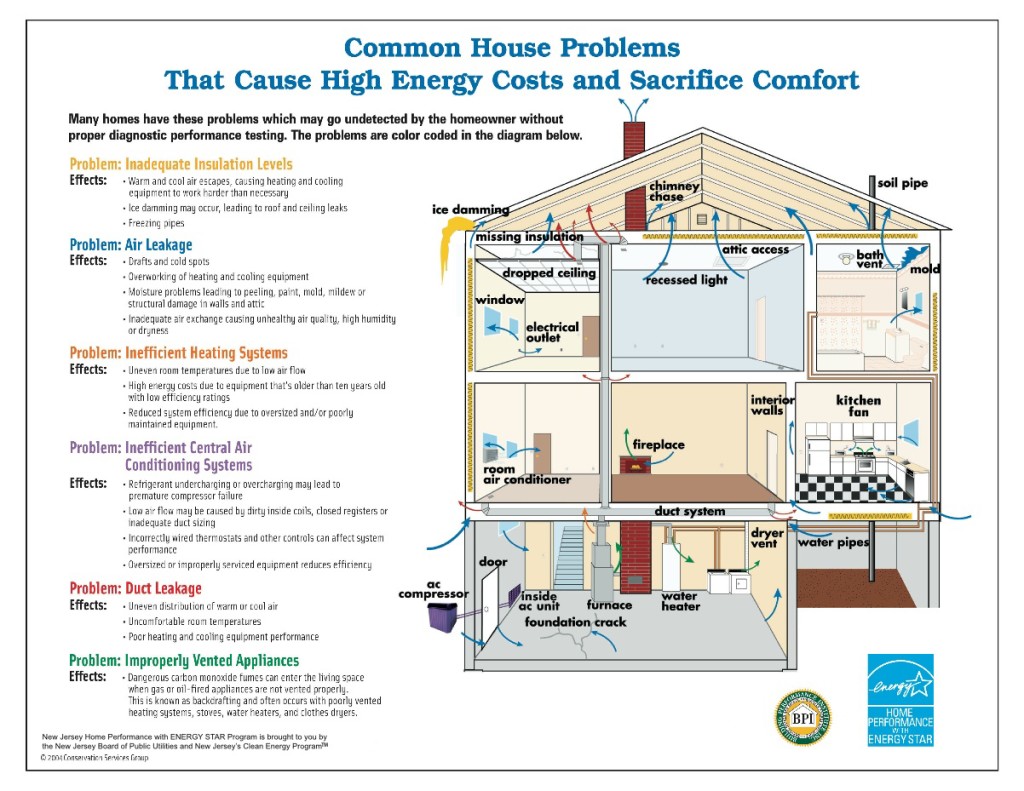Rise by Six: Your Daily Dose of Inspiration
Explore insights and stories that elevate your day.
Breathe Easy: The Case for Energy-Efficient Homes
Discover how energy-efficient homes can save you money and improve your health. Breathe easy and join the green revolution today!
Top 5 Benefits of Energy-Efficient Homes for Your Health and Wallet
Energy-efficient homes are designed to minimize waste and enhance overall comfort, offering significant benefits for both your health and wallet. One major advantage is the improved air quality that comes from using better insulation, energy-efficient windows, and appliances. These features help reduce the infiltration of pollutants and allergens, making the indoor environment healthier for you and your family. Furthermore, by reducing reliance on HVAC systems, energy-efficient homes maintain a consistent temperature throughout the year, enhancing overall comfort and wellbeing.
In addition to health benefits, the financial advantages of energy-efficient homes are substantial. Homeowners can see a significant reduction in energy bills owing to efficient energy use, leading to long-term savings. According to the U.S. Department of Energy, energy-efficient upgrades can save an average of 20-30% on energy costs. Furthermore, investing in energy-efficient technologies can increase your property’s value, making it a wise choice for your wallet in the long run. When investing in your home, consider these five key benefits to both health and finances: decreased energy consumption, cost savings, improved comfort, increased property value, and a reduced environmental footprint.

How Energy-Efficient Homes Improve Indoor Air Quality
Energy-efficient homes are designed to minimize energy consumption while maximizing comfort, and one of the often-overlooked benefits they provide is improved indoor air quality. By utilizing energy-efficient building materials and advanced ventilation systems, these homes reduce the infiltration of outdoor pollutants and allergens. Instead of relying on simple open windows for ventilation, modern energy-efficient homes typically employ mechanical ventilation systems that filter out harmful particulates and maintain a consistent flow of fresh air, thus creating a healthier living environment for occupants.
Moreover, energy-efficient homes are equipped with high-efficiency HVAC systems that not only lower energy use but also contribute to better indoor air quality. These systems often feature advanced filtration technology, which captures dust, pet dander, and other allergens, resulting in cleaner air circulation throughout the home. Improved air quality not only enhances the overall comfort of residents but also leads to significant health benefits, reducing the risk of respiratory problems and allergic reactions. Ultimately, investing in an energy-efficient home is a key step toward safeguarding your family's health and well-being.
Is Your Home Energy Efficient? Signs You're Due for an Upgrade
Understanding whether your home is energy efficient can save you money and increase your comfort. One of the most obvious signs that you might be due for an upgrade is a noticeable increase in your utility bills. If you've seen a sharp rise in costs despite similar energy usage habits, it may indicate that your home is not operating as efficiently as it should. Additionally, drafts or inconsistent temperatures throughout your home are strong indicators. If some rooms feel colder in the winter or hotter in the summer, it may mean that your insulation isn’t performing well.
Another critical sign is the age of your appliances. Most home appliances have a lifespan of about 10-15 years, and older models tend to consume more energy than their modern counterparts. Consider checking the energy rating of your appliances as well; if they aren’t ENERGY STAR certified or similar, it may be time for an upgrade. Finally, look for windows and doors that are easy to open and close. If they stick or show signs of air leaks, you may be losing precious heated or cooled air, which can severely impact your home’s energy efficiency.